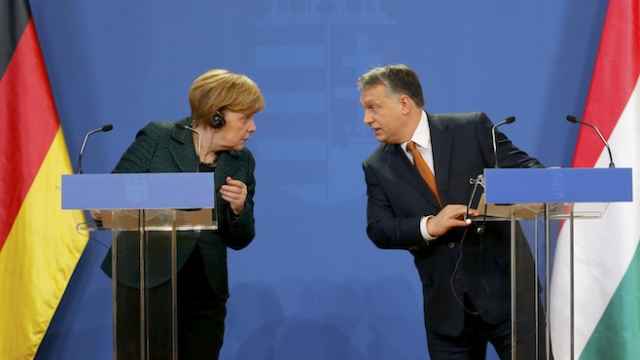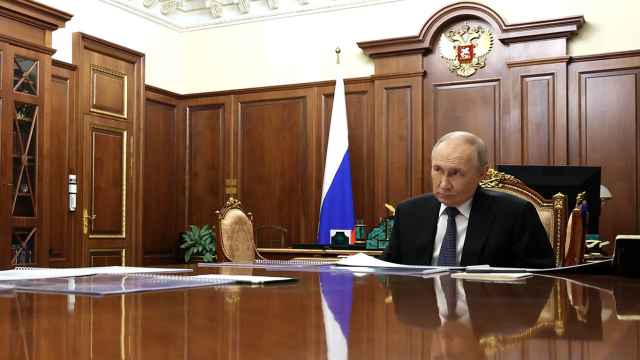BUDAPEST, Hungary — Hungary "cannot afford not to talk to Russia" about ensuring gas supplies, the Hungarian foreign minister said Thursday.
Foreign Minister Peter Szijjarto told The Associated Press that because of the cancellation of two natural gas pipeline projects, Nabucco and South Stream, "the only way to ensure energy security in Hungary is to negotiate with the Russians."
Russian President Vladimir Putin will visit Hungary on Tuesday, and Prime Minister Viktor Orban has said that negotiations about a new gas contract would top the agenda.
"We wish there were other solutions, but there are not," Szijjarto said in an interview. "Everyone has to accept that we cannot afford not to talk to Russia."
Szijjarto said 85 percent of Hungary's gas supplies come from Russia and an agreement on the supplies, signed in 1996, expires this year. Hungarian households and industries are highly reliant on natural gas.
Szijjarto also said that Hungary would continue backing the European Union's sanctions on Russia, even though Hungary's exports to Russia and Ukraine were down $750 million because of the sanctions and the Ukrainian conflict.
Orban will meet Friday with Ukrainian President Petro Poroshenko in Kiev to show Hungary's dedication to the "territorial integrity and sovereignty of Ukraine," home to about 150,000 ethnic Hungarians, Szijjarto said.
Turning to relations with the United States, Szijjarto said entry bans imposed last year on six Hungarian officials suspected of corruption had put an "obstacle" on political cooperation.
"If we want to run a successful foreign policy then we just simply cannot afford to have serious open issues with the United States," Szijjarto said.
Szijjarto said the matter was a "closed issue" because Washington had failed to provide evidence of its suspicions.
The only official on the U.S. list whose identity has been revealed is Ildiko Vida, the head of the tax authority. She has denied the allegations.
A Message from The Moscow Times:
Dear readers,
We are facing unprecedented challenges. Russia's Prosecutor General's Office has designated The Moscow Times as an "undesirable" organization, criminalizing our work and putting our staff at risk of prosecution. This follows our earlier unjust labeling as a "foreign agent."
These actions are direct attempts to silence independent journalism in Russia. The authorities claim our work "discredits the decisions of the Russian leadership." We see things differently: we strive to provide accurate, unbiased reporting on Russia.
We, the journalists of The Moscow Times, refuse to be silenced. But to continue our work, we need your help.
Your support, no matter how small, makes a world of difference. If you can, please support us monthly starting from just $2. It's quick to set up, and every contribution makes a significant impact.
By supporting The Moscow Times, you're defending open, independent journalism in the face of repression. Thank you for standing with us.
Remind me later.





